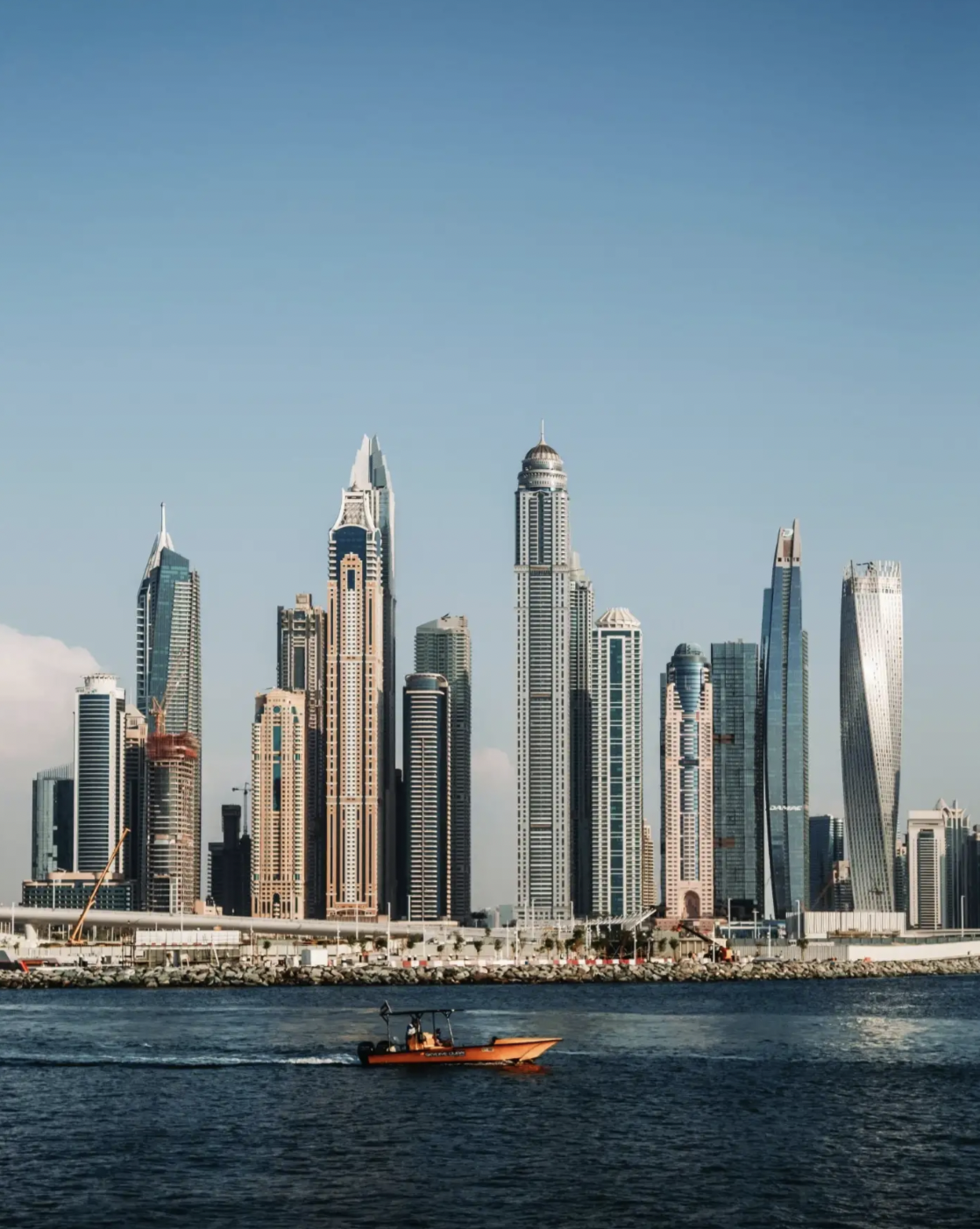Top 5 Entrepreneurship Trends in 2023
The digital age has brought with it a universe of opportunities, technology and information have arrived to make it easier for us to create new projects and ideas. The reality is that the Covid-19 pandemic has marked a before and after in terms of business management, giving space to digital transformation and business innovations. Predictions tell us that 2023 will be an excellent year to undertake and invest in those ideas that constantly bounce around in our minds, so if you are one of the people who knows how to identify the opportunities that technology and interconnectivity offer us, this article is for you. Web 3.0 business. The technology hidden in web 3.0 is based on a blockchain system that allows new ideas and business models, democratizing the ability to create value companies and offering services such as financial solutions without the need to have other intermediary companies. For example, web 3.0 will enable transactions between users or companies worldwide without having to go through a waiting process and pay bank fees. App design. Application designers are experiencing a high demand within the market, causing large companies such as Google or Amazon to lose strength in the search for products on the Internet. IOT. Also
A new kind of business class is taking off.
The airline industry has undoubtedly had a turbulent last couple of years–from restricted travel, financial troubles, and new safety guidelines. Now we are finally returning to the open skies, but with some unexpected trends that rose out of the pandemic. Namely, a revamped business class. The luxury leisure flier Not too long ago, it wasn’t unusual to see a business class exclusively filled with–well, business travelers. Now, thanks to savings and credit card points racked up during the pandemic, it’s not surprising to see today’s business class passengers headed on a family trip. Dubbed “luxury leisure” customers, these travelers are now paying top dollar to reach their vacation destinations. Especially in the United States, where the average price for a domestic business class ticket was $1,447 this year–a drop from 2019’s average of $1,708. A new premium experience Naturally, airlines are offering more high-end options in response to the growing number of luxury leisure travelers. Delta Airlines, where premium products outperformed main cabinet products earlier this year, recently updated their Delta Premium Select cabin. Now, passengers are treated to destination-inspired menu items, Someone Somewhere amenity kits, noise-cancellation headphones, and more. American Airlines plans to unveil their new premium Flagship Suite in 2024. Customers can look forward
The Middle East: A growing luxury travel destination.
Last year, the size of the luxury tourism industry exceeded $17 billion in the United States. Despite setbacks from years of the pandemic, the market is still growing and on pace to be worth more than $82 billion by 2030. This huge growth is driven, in part, by big sporting events (think Super Bowl packages), baby boomers spending more money to travel with their loved ones, and millennials with disposable income. However, a large part of the industry’s success also comes from an increased demand for safari and other animal-watching experiences in the Middle East and North Africa (also known as the MENA region). While MENA’s outdoor activities are fueling the boom, the Middle East also has much more to offer both leisure and business travelers. From stunning architecture to world-class meals and five-star hotels, this region is becoming a hotspot in luxury travel–and the hospitality industry is taking notice. This year, several new luxury hotels have opened all across the Gulf countries. Now, travelers with their eyes on the Middle East have their pick of the newest high-end properties. Whether it’s the Ritz Carlton Amman (which happens to be the brand’s first hotel in Jordan), the Nobu Hotel Riyadh in Saudi Arabia,
Can French delicacies survive climate change?
Wine and cheese lovers worldwide praise the French. And rightfully so–they have been perfecting the art for centuries. But in recent years, these popular French exports have been hit hard by climate change from crop harvesting to supply chain issues. Plagued by intense weather, France saw one of its worst growing seasons in 2021. At the beginning of last year, unseasonably high temperatures caused grapes to bloom early on vineyards. A month later, the country experienced freezing temperatures. The drastic weather affected 80% of vineyards in a majority of the country’s popular wine regions, including Provence, Burgundy, and the Rhône Valley. Although farmers did what they could to preserve crops, like lighting large candles and making fires, the country lost a third of its wine production in 2021–worth almost £1.7 billion. The frost was so significant that French Agriculture Minister Julien Denormandie declared it one of the worst “agricultural disasters” of the century. Just as vineyards were recuperating, France experienced a late frost in 2022. Fortunately, conditions weren’t as bad as the last growing season, but certain regions like Burgundy were hit hard. In Bordeaux, for example, this year’s production is predicted to be lower than the five-year average. Frost isn’t the only extreme
Is it a good time to invest in the hotel sector?
The hotel sector has recovered after being interrupted by hotel investments because of the impact of the Covid-19 and its respective restrictions imposed, investors globally have shown a strong precipitated interest in the hotel industry. Investors are reinventing themselves in conjunction with consumer preferences and demands towards responsible consumption, focusing their actions on socially responsible investments. This type of investment is more attractive to investors looking for properties according to the characteristics and requirements of the market. According to the Colliers International report, in the first three months of 2022, hotel investment closed with a total volume of 1,520 million euros, a surprising figure that exceeds that recorded in recent years, a total of 52 operations with the purchase of existing hotels, land for the development of the same and to be converted to hotels. Evidencing the recovery of the hotel sector, the pandemic has generated opportunities in adding value to assets, to give hotels the opportunity to adapt actions to the changes and behaviors of consumers with the challenge of keeping up with new trends and technologies, in my opinion it is ideal to invest in the hotel sector. Certainly, the future of hotel investment lies in socially responsible investments.
Female entrepreneurship traveling
Nowadays, more and more women join the world of entrepreneurship and embark on a new adventure to achieve economic, personal and professional independence. More and more women are innovating and at the same time venturing into a market that is often dominated by men. These are women without barriers willing to achieve success. According to the annual report of the Global Entrepreneurship Monitor (GEM), which is an international observatory that annually analyzes the entrepreneurial phenomenon, in Spain men undertake more than women. However, it should be noted that the crisis caused by Covid-19 has had a slight impact on this gap. On the other hand, the world of travel is a tourism sector that has had a great boom, at the same time women who have carried out innovative projects in this industry stand out. Among them, the entrepreneur Patricia Rosselló Palmer, winner of the "Shine Business Woman of the Year" award in the Tourism Sector in the United Kingdom in 2006. Patricia is the founder of Roibos, with more than 20 years of experience in the tourism sector. In September 2019, she founded Roibos, a technological platform that allows agencies and tour operators to contract hotel miles directly without intermediaries. The agency
An exclusive, NFT-powered dining club is coming to NYC
NFTs are slowly finding a way to make their mark on every industry. And now, they’re powering a new dining concept that will be opening in Manhattan next year. But, what role does crypto have in a restaurant that serves real food and requires payment in US dollars? Read more.
Women in Enology
Every day the enology surpasses the projected profits of the business, the techniques of science, among other aspects that are integrated into its universe. Likewise, every day there are more and more women practicing in the science of wine and who continue to be relevant in their expertise. As a wine enthusiast I read about its most outstanding specialists, among the great talents in the world of enology we cannot skip to mention María Vargas, who has developed a notorious professional career in the prestigious Marqué de Murrieta winery and was considered Best Winemaker in the World in 2017 by Tim Atkins. With a Master's Degree in Enology and Viticulture, she also received recognition for Best Wine of Europe, with her Gran Reserva Castillos de Ygay. In 2018 the first Spanish woman, Almudena Alberca, Technical Director of Bodegas Viña Mayor, was named Master of Wine, the MW recognition is one of the most demanding in the profession due to the extensive knowledge required and excellence in the wine sector. Alberca has been developing her work as an oenologist for more than 15 years, also with a degree in Agricultural Engineering. A number of great roles in winemaking played by outstanding female talents such
There’s always room for beer
While beer has consistently performed well in the global economy, that doesn’t mean it has been immune from challenges brought on by the pandemic. Craft beers, in particular, have struggled amid climate change and supply chain issues–making it harder for local brands to scale into new markets. However, there is room for optimism. Read more
Outstanding crowdfunding platforms in the real estate sector
There is no doubt that the way of doing business and the trends to make the most of our money åhave changed in recent years. One of these instruments is crowdfunding, which can give access to a profitable market and in which you can participate with different levels of investment, depending on your appetite. There are rankings on platforms linked to the real estate sector that can help boost assets and generate profitable incomes through this method of raising capital. One of them includes Estateguru, its origin is from Estonian and has more than 100,000 investors, it’s a leader in financing and real estate investment. Among the benefits that this platform offers is the ease of access that investors have to a variety of real estate investments with relatively minimal capital, since the minimum amount to start investing is €50 euros. It has access to the real estate market in different European countries, and its historical rate of failed investments is practically null. They have a very limited risk thanks to mortgage guarantees. On the other hand, StockCrowdIN, some users highlight that it’s one of the most complete platforms. It’s authorized by the National Securities Market Commission (CNMV) and has real estate










